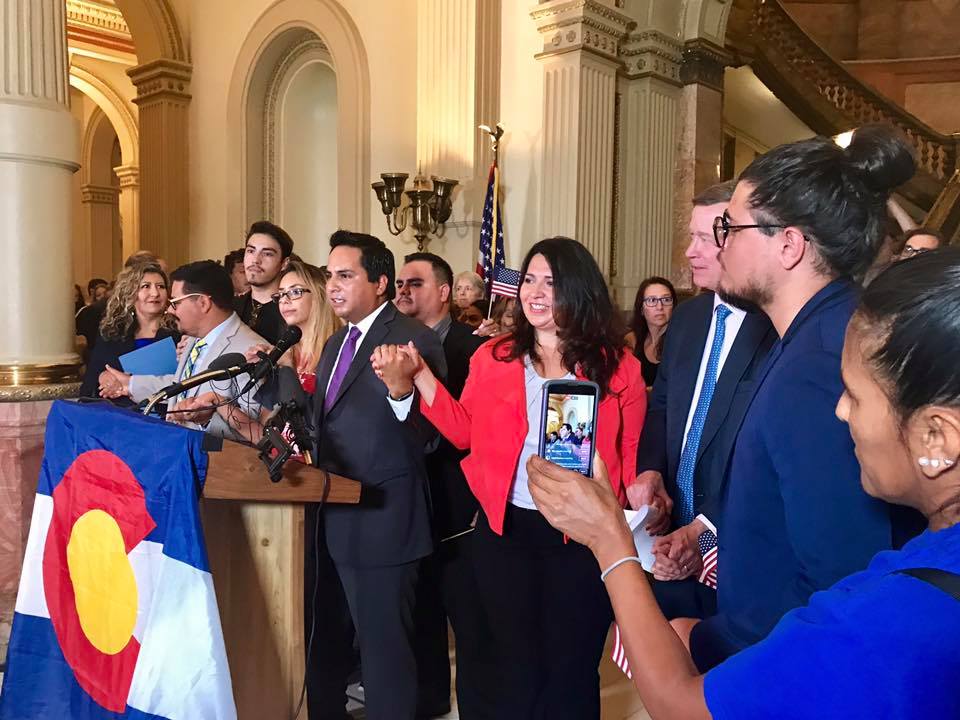DENVER – The ACLU of Colorado filed a lawsuit this morning against the Pueblo and Teller County Sheriff’s Offices on behalf of Michael Bailey, who was held in jail for 52 days on a years-old misdemeanor warrant awaiting his first appearance before a judge.
The lawsuit, which was filed this morning in federal district court, seeks compensatory and punitive damages.
On Sept. 8, 2015, the Teller County Sheriff’s Office arrested Mr. Bailey on a four-year-old misdemeanor warrant from Pueblo County. Although Colorado law requires that newly arrested detainees be brought “without unreasonable delay” to the nearest county court judge, who could set bond, the Teller County Sheriff’s Office refused to take Mr. Bailey to court. Instead, it waited for the Pueblo County Sheriff’s Office to transport Mr. Bailey to Pueblo. For more than six weeks, the Pueblo County Sheriff’s Office ignored multiple notices to transport Mr. Bailey.
When Mr. Bailey finally appeared before the Pueblo County Court after 52 days in jail, he was immediately released on a personal recognizance bond, and all charges were dismissed soon afterward.
“Both the Teller and Pueblo County sheriffs, through their indifference and incompetence, are responsible for forcing Michael Bailey to languish in jail for two months without any opportunity to post bond or see a judge,” said Mark Silverstein, ACLU of Colorado legal director. “Bailey was stuck in legal limbo as both sheriff departments violated his constitutional right to appear promptly before a judge who could advise him of his rights and allow him to be released on bond.
As a result of his prolonged detention, Bailey lost his job and nearly two months of wages.
According to ACLU of Colorado staff attorney Rebecca Wallace, what happened to Mr. Bailey is indicative of a long-standing, statewide problem.
“For years, the ACLU of Colorado has been receiving complaints of defendants languishing in jail on warrants from other counties for 10 days or more, with no opportunity to see a judge,” said Wallace. “We have been investigating the cause of these delays and have determined that many county sheriffs across the state are not following court rules requiring them to bring their prisoners promptly before a judge for a first appearance. This failure not only violates defendants’ constitutional rights, it also contributes to the problem of over-incarceration and jail overcrowding that plagues Colorado.”
“The real-life consequences of pretrial detention are broad and deep,” said ACLU cooperating attorney Darold Killmer. “That’s why we have due process protections built into the system to ensure that pretrial defendants, who are innocent in the eyes of the law, are not stuck in jail waiting for their day in court. In this case, and far too many others across the state, those protections failed because they were not followed.”
Bailey is represented by Silverstein, Wallace and Killmer, as well as Michael Fairhurst of Killmer, Lane & Newman, LLP.
more on this case
 Colorado elected officials and community leaders held a press conference in support of DACA. September 1, 2017. Colorado Capitol, Denver, Colorado.
Colorado elected officials and community leaders held a press conference in support of DACA. September 1, 2017. Colorado Capitol, Denver, Colorado.